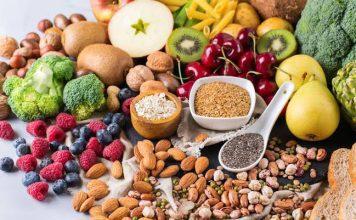Maintaining a healthy diet is crucial for overall health and well-being, with a focus on consuming a variety of fruits, vegetables, fiber, protein, and dairy while limiting the consumption of high-fat, high-salt, and high-sugar foods.
In addition to these dietary guidelines, health professionals advocate for an anti-inflammatory diet to prevent life-threatening conditions such as heart disease, Alzheimer’s disease, and cancer.
Harvard Medical School experts have outlined specific anti-inflammatory foods that should be incorporated into one’s daily meals.
They also highlighted the harmful effects of inflammation on the body, emphasizing the importance of adopting an anti-inflammatory diet for optimal health.
They stated, “Your immune system becomes activated when your body recognizes anything that is foreign—such as an invading microbe, plant pollen, or chemical
“This often triggers a process called inflammation. Intermittent bouts of inflammation directed at truly threatening invaders protect your health.
“However, sometimes inflammation persists, day in and day out, even when you are not threatened by a foreign invader.
“That’s when inflammation can become your enemy. Many major diseases that plague us — including cancer, heart disease, diabetes, arthritis, depression, and Alzheimer’s — have been linked to chronic inflammation.”
They unveiled that one of the most “powerful tools” to combat inflammation could be seen in what we eat.
“Many experimental studies have shown that components of foods or beverages may have anti-inflammatory effects,” Dr Frank Hu, professor of nutrition and epidemiology at the Harvard School of Public Health, stated.
To reduce inflammation in the body, it is recommended to consume foods such as :
Tomatoes
Olive oil
Green leafy vegetables like Spinach and Kale collards and
Nuts like almonds and walnuts
Fatty fish such as Salmon , Mackerel ,Tuna and sardines, and
Fruits like strawberries, blueberries, cherries, and oranges.
These foods are high in natural antioxidants and polyphenols, which are protective compounds found in plants. On the other hand, consuming certain foods can accelerate the inflammatory disease process, as indicated by Harvard Health.
Additionally, coffee, containing polyphenols and other anti-inflammatory compounds, may offer protection against inflammation.
Dr Hu Proceeded, “Some of the foods that have been associated with an increased risk for chronic diseases such as type 2 diabetes and heart disease are also associated with excess inflammation.
“It’s not surprising, since inflammation is an important underlying mechanism for the development of these diseases.”
He recommended minimizing consumption of the following foods:
– Processed carbohydrates like white bread and pastries
– Fried foods like French fries
– Sugary beverages like soda
– Red and processed meats such as burgers, steaks, hot dogs, and sausage
– Unhealthy fats like margarine, shortening, and lard.
It is common knowledge that these unhealthy foods can lead to weight gain, a risk factor for inflammation. However, research shows that even after considering obesity, there is still a clear connection between these foods and inflammation, indicating that weight gain is not the sole contributor.
Dr Hu stated ,”Some of the food components or ingredients may have independent effects on inflammation over and above increased caloric intake.”
